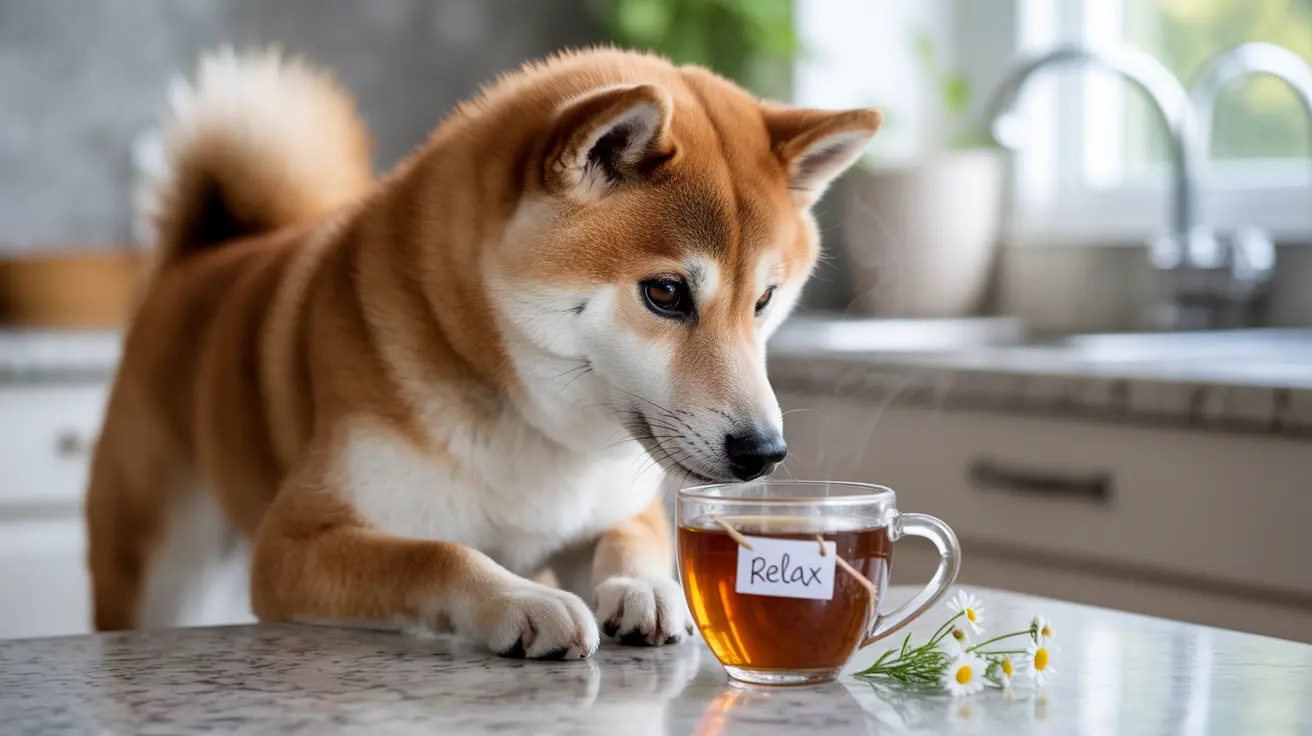As pet owners increasingly share their daily rituals with their four-legged friends, many wonder about giving their dogs tea. However, what's enjoyable and beneficial for humans can be dangerous for our canine companions. This comprehensive guide explores the safety concerns, risks, and alternatives when it comes to dogs and tea consumption.
Understanding the relationship between dogs and tea is crucial for every pet owner, as many common tea varieties contain substances that could be harmful or even toxic to our pets. Let's dive into what you need to know to keep your furry friend safe and healthy.
The Dangers of Caffeinated Tea for Dogs
Regular tea varieties like black, green, white, and oolong contain caffeine, which poses significant risks to dogs. Unlike humans, dogs process caffeine much more slowly, making them particularly vulnerable to its toxic effects. Even small amounts can lead to serious health complications.
The caffeine content in just one cup of tea could be enough to cause adverse reactions in small dogs or those with sensitive systems. This makes all caffeinated teas, including partially decaffeinated versions, unsafe for canine consumption.
Common Signs of Tea-Related Caffeine Toxicity
Watch for these warning signs if your dog accidentally consumes tea:
- Restlessness and anxiety
- Rapid breathing
- Elevated heart rate
- Vomiting
- Muscle tremors
- Seizures
- In severe cases, collapse or coma
Safe Alternatives to Regular Tea
While traditional teas are off-limits, there are several safe alternatives if you want to share a warm drink with your pet:
Dog-Safe Herbal Options
Some caffeine-free herbal teas may be safe when properly prepared and served in moderation:
- Chamomile tea (helps with relaxation)
- Pure peppermint tea (aids digestion)
- Ginger tea (helps with nausea)
- Rooibos tea (rich in antioxidants)
Always serve these teas plain, completely cooled, and diluted with water. Never add sweeteners, milk, or other additives.
Best Practices for Hydration
While some herbal teas might be safe, fresh water should always be your dog's primary source of hydration. If you're looking for a warm, nutritious alternative to tea, consider these options:
- Plain, low-sodium bone broth
- Pet-specific hydration supplements
- Water enhanced with dog-safe vegetables
Preventing Tea-Related Accidents
Take these precautions to protect your dog from accidental tea consumption:
- Keep all tea bags and loose tea stored securely
- Never leave hot tea unattended
- Clean up any spilled tea immediately
- Inform house guests about the dangers of sharing tea with your pet
Frequently Asked Questions
Can dogs safely drink any type of tea, or is all tea harmful to them?
No, not all tea is safe for dogs. Traditional teas containing caffeine (black, green, white, and oolong) are harmful to dogs. Only certain caffeine-free herbal teas, when properly prepared and served in moderation, may be safe with veterinary approval.
What are the symptoms of caffeine poisoning in dogs after drinking tea?
Symptoms include restlessness, rapid breathing, elevated heart rate, vomiting, muscle tremors, and seizures. In severe cases, caffeine poisoning can lead to collapse, coma, or death. Contact your veterinarian immediately if you suspect your dog has consumed caffeinated tea.
Are herbal teas like chamomile or peppermint safe for dogs to consume?
Some herbal teas can be safe for dogs when served plain, cooled, and diluted. Chamomile may help with relaxation, while peppermint can aid digestion. However, always consult your veterinarian before introducing any herbal tea to your dog's diet.
Why should dogs never be given tea with milk or sweeteners like xylitol?
Many dogs are lactose intolerant, making milk additions problematic. Artificial sweeteners, especially xylitol, are extremely toxic to dogs and can cause severe illness or death. Even natural sweeteners like honey should be avoided due to unnecessary calories and potential digestive issues.
What are safe warm drink alternatives to tea for dogs?
The safest warm drink alternatives for dogs include plain, low-sodium bone broth, specially formulated pet broths, and water warmed to a safe temperature. These options provide hydration without the risks associated with tea consumption.
Conclusion
While sharing tea with your dog might seem like a loving gesture, it's best to stick to pet-safe alternatives. Focus on providing fresh water and veterinarian-approved treats instead. If you're concerned about your dog's hydration or looking for safe warming drinks, consult with your veterinarian for personalized recommendations.






